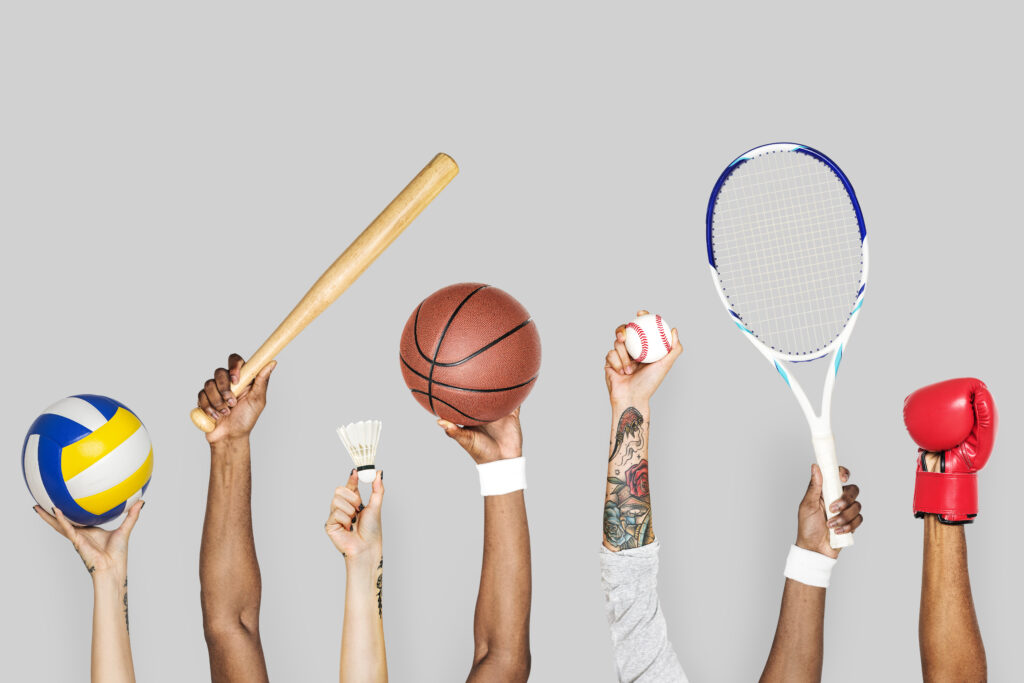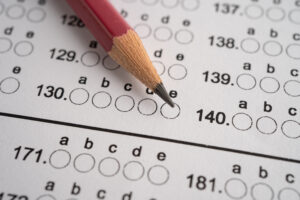There are a lot of jokes told about the supposed lack of academic prowess of college athletes. While these do generalize, there is some grain of truth to some of them; after all, cheating and grade inflation scandals involving athletes regularly crop up in the news. This is then turned into a general understanding, and parodied endlessly. Of course, there are plenty of intelligent and motivated student athletes, who strive to excel on the fields of competition and in the classroom alike. In this article, we’re going to discuss the most academically competitive DI and DIII schools. After all, college athletics is a wonderful time, but you want a school that’s a great academic fit as well. Let’s get started!
The Ivy League
It’s no surprise these are going to have to be the first schools mentioned. The Ivy League was founded as an athletic conference after all, and they are all well known for the quality of their academic programs. In addition to this, Ivy League schools sponsor a lot of sports. Not just the classics of football and basketball, but over a score of different sports teams apiece, all competing for glory.
The Ivy League is also occasionally competitive athletically, sending athletes to the olympics, or occasionally into the professional leagues. That said, because they have their own conference, they rarely play any of the powerhouse teams, instead focusing on each other.
While admissions to the Ivy League is very competitive, it is well known to be much easier if you are recruited as an athlete. That said, you do still need to meet their high academic standards; it’s just that being recruited as an athlete maxes out your score on your extracurricular rating, which makes admission much easier overall.
Other DI Schools
Of course, there are other great schools outside of the Ivy League, some of which are quite competitive academically. We’ll provide a brief each, including any notable academic standards for recruits. Note that these do vary between sports on occasion. We’re presenting these schools in alphabetical order, for your convenience. We are not including any Ivy League Schools on this table, as they were discussed above.
| College | Notes |
| Boston College | They are most athletically competitive in hockey and football, and are academically strong in many areas, being a well regarded tier two school. |
| Boston University | An old rival of Boston College, BU is competitive academically and athletically. Athletes are given a slight academic break. |
| Duke | Duke takes athletics very seriously. Recruited athletes are given preference in admissions, but must have competitive academic scores. |
| Georgetown | Georgetown is not the most athletically competitive, but does offer 23 varsity teams. Their athletes are remarkably successful academically. Recruited athletes are advantaged in admissions. |
| Johns Hopkins* | Johns Hopkins fields both DI and DIII teams at the same time. They are competitive in both, though more so in DI, particularly lacrosse. Athletes in both divisions have an admissions advantage. |
| Northwestern | Northwestern is a founding member of the Big 10 conference, and their teams are the most academically successful (if not the best athletically). Athletes do have an advantage in the admissions process. |
| Notre Dame | Notre Dame participates in 26 sports, and significantly advantages athletes in admission. They do have high academic standards for athletes, but those who meet them are set. |
| Rice | Rice is among the smallest schools to partake in DI football, but they do compete seriously. Recruited athletes receive an admissions advantage, but must be academically competitive as well. |
| Stanford | Stanford is very competitive athletically, both in the NCAA and for students sent to the Olympics. Athletes must meet their standards, but are advantaged in admissions, though the extent of this lessened after the Varsity Blues scandal. |
| UC Berkeley | Berkeley is very competitive athletically, and top athletes in some sports may see relaxed admissions standards compared to their peers. There are still academic standards, but athletic recruits do not need to be academically competitive, just qualified. |
| UCLA | As with Berkeley, top athletic recruits to UCLA merely need to be academically qualified for the school, rather than competitive within their admissions pool. Recruited athletes have a major admissions advantage. |
| University of Florida | UF fields 21 teams, and is quite serious about sports. Top athletic recruits do have an easier path to admissions, though they must still meet academic minimums. |
| University of Michigan | UMich fields 27 teams, and is part of the Big 10 conference. They are quite competitive athletically, and top recruited athletes have a significant advantage in admissions. They do need to meet academic standards, but need not be as competitive. |
| UNC Chapel Hill | UNC is competitive athletically, and does provide a large admissions boost to recruited athletes. Athletes do need to be qualified academically, but have a significant admissions advantage. |
| USC | USC is quite competitive athletically, and has a long standing athletic tradition. They provide a significant admissions boost to recruited athletes, though they still need to be academically qualified for the school. |
| University of Virginia | UVA traditionally has ranked very high, regularly being regarded as a top athletic program in the nation. They are academically rigorous as well. Athletes receive an advantage in admissions, but must be qualified academically. |
| Vanderbilt | Vanderbilt hosts 16 athletic teams. While they are passionate about athletics, they are not always a top program. Athletes are advantaged in admissions, but must meet academic standards. |
| Wake Forest | Wake Forest is competitive athletically, with athletes occasionally recruited to the professional leagues. Recruited athletes are boosted in the admissions process, but must be academically qualified for the school. |
Division III Schools
A large number of academically strong schools are in DIII, because they have chosen specifically to focus on academics over athletics. The time UChicago disbanded football was the ultimate example of this (even if they brought it back later). These schools do take athletics seriously, but provide less of an admissions boost to athletes, and give far more consideration to your academic preparation.
| College | Notes |
| Caltech | Caltech does have DIII teams, but is not well known for its athletic prowess. Athletes gain no advantage in the admissions process. |
| Carnegie-Mellon | A founding member of DIII, CMU takes sports seriously, but does not provide much of an admissions boost to athletes. |
| Case Western | A historic rival of CMU, Case takes sports seriously, but again, does not offer much of an admissions advantage to athletes. |
| Emory | Emory has 18 varsity teams. While coaches do offer input to admissions, admissions officers make the final choices. Athletes have a small advantage in admissions. |
| MIT | MIT sponsors 31 varsity sports, one of the broadest DIII schools. While they take athletics seriously, athletes do not receive any significant boost in admissions. |
| NYU* | NYU teams primarily compete in DIII, but they do have DI fencing and ice hockey teams. Athletes are given a boost in the admissions process. |
| Tufts | Tufts has significant prowess in DIII, and fields 28 teams. Athletes are given a slight advantage in admissions, though must still be academically competitive. |
| UChicago | UChicago hosts 19 teams. While they were an athletic powerhouse 100 years ago, they are now merely proficient. Athletes are given a slight advantage in admissions, but must still be academically competitive. |
| Washington University in St. Louis | WashU is quite competitive athletically, being one of the founding members of the DIII conference. Athletes do receive a boost in the admissions process, but must meet the academic standards for the school. |
Being a Recruited Athlete at a Top Academic School
So what does all of this information mean? In general, at DI and DIII schools, athletes receive an advantage in the admissions process. While there are some exceptions, a top athletic talent is at minimum regarded as the highest grade possible in extracurricular achievement, one of the core areas universities focus on.
The biggest difference is how lax universities can be with academic performance for recruited athletes. Some schools show no leeway at all, while others are more flexible. This is a gradient, not a clear divide, but here are how it works generally:
- Some schools just require top athletes to meet the requirements for admission. These are often lower than expected. While Cs might not get you in, Bs and a 1200 SAT can.
- Some schools require athletes to be academically on level. They need good grades and test scores overall, but don’t need to be the valedictorian, or have any of the other major activities they look for in applicants.
- Some schools require athletes to be academically competitive, holding them to the same standards as all other applicants.
For more information about how the recruiting process works, and on your chances of getting recruited, see our guide to recruiting.
Final Thoughts
The idea of a renaissance man was a scholar equally talented in all the fields of study, academic and physical. This was incredibly popular at the beginning of the 20th century as well, when many modern collegiate traditions were solidified. While the portrait of a student athlete has changed over the years, many colleges still aspire to this model, challenging students to succeed on the field and in the classroom.
We hope this article has given you a solid overview of some academically strong schools with strong sports programs as well. Of course, these are hardly the only schools which allow you to partake in both, but they do have significant opportunities. If you want more personalized advice, as a student, an athlete, or both, schedule a free consultation today. From advising on essays to guiding you through the recruiting process, we understand every aspect of college admissions, and are always happy to hear from you.








